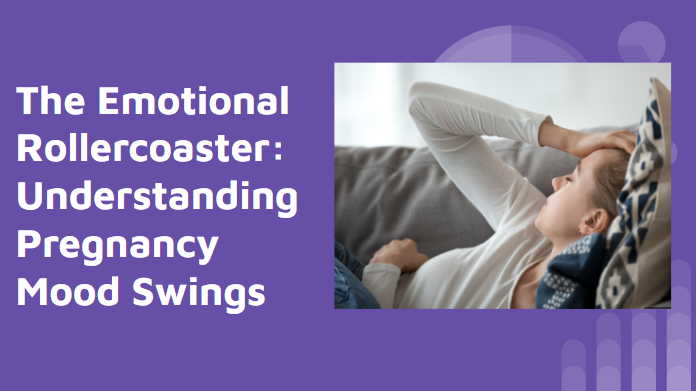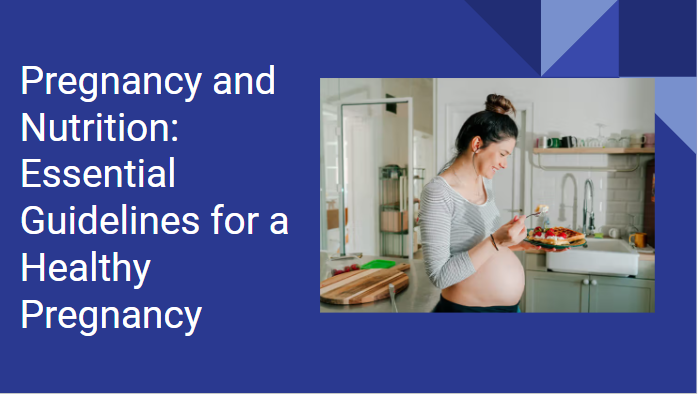How Soon After Unprotected Sex Can I Test for Pregnancy?
Last Updated on September 7, 2023 by Lily
Unprotected sex can lead to concerns about potential pregnancy. Fortunately, modern pregnancy tests offer a reliable means of early detection. However, it’s crucial to understand the optimal timing for accurate results. This essay explores the recommended waiting period after unprotected intercourse before taking a pregnancy test.
1. The Menstrual Cycle and Conception
Understanding the menstrual cycle is fundamental in determining the right time for a pregnancy test. A typical menstrual cycle lasts around 28 days, although this can vary widely among individuals. Ovulation, the release of a mature egg from the ovary, occurs approximately halfway through the cycle. This marks the fertile window, the period during which conception is most likely to occur.
2. Early Pregnancy Hormone: hCG
Human Chorionic Gonadotropin (hCG) is a hormone produced by the developing placenta shortly after a fertilized egg attaches to the uterine lining. This hormone serves as an important indicator of pregnancy and is what pregnancy tests are designed to detect.
3. Timeframe for Testing
a. Recommended Waiting Period
It’s generally advised to wait at least 10-14 days after unprotected intercourse before taking a pregnancy test. This waiting period allows sufficient time for hCG levels to rise to a detectable level. Testing too soon after intercourse may yield a false negative result. This is because hCG levels may not have reached a detectable range.
b. Testing Too Early
Testing too soon after intercourse can lead to inaccurate results. If the fertilized egg has not yet implanted, hCG levels will remain low, potentially falling below the threshold of detection for most pregnancy tests.
4. Early Detection Pregnancy Tests
a. Early Detection Tests
Some pregnancy tests are designed for early detection, capable of identifying pregnancy as soon as 7-10 days after conception. These tests are equipped with a higher sensitivity to lower levels of hCG.
b. Accuracy and Reliability
While early detection tests offer the potential for earlier results, it’s important to note that their accuracy may vary. Factors like proper usage, the concentration of hCG, and the sensitivity of the test can all influence the reliability of the results. Always follow the instructions on the test kit for the most reliable outcome.
5. Factors Affecting Testing Accuracy
a. Irregular Cycles
Women with irregular menstrual cycles may find it challenging to determine the optimal time for testing. In such cases, consulting a healthcare provider can offer guidance. They may recommend monitoring other signs of pregnancy, such as changes in cervical mucus or basal body temperature.
b. Use of Medications
Certain medications or fertility treatments can affect hCG levels, potentially influencing the timing of the test. It’s important to inform a healthcare provider of any medications being taken, as they can provide specific guidance on when to take a pregnancy test.
6. Emotional and Psychological Considerations
Waiting for the results of a pregnancy test can be an emotional and anxious time. It’s essential to approach the situation with patience and care. Seeking support from a trusted friend, family member, or healthcare professional can provide valuable reassurance and guidance.
FAQs
Can I take a pregnancy test the day after unprotected sex?
It’s generally recommended to wait at least 10-14 days after unprotected intercourse before taking a pregnancy test. Testing too early may lead to a false negative result.
Do early detection tests provide more accurate results?
Early detection tests can provide results sooner, but their accuracy may vary. Always follow the instructions on the test kit for the most reliable outcome.
How can irregular menstrual cycles affect the timing of a pregnancy test?
Women with irregular cycles may find it challenging to determine the optimal testing time. Consulting a healthcare provider for guidance is recommended in such cases.
Can medications or fertility treatments affect pregnancy test results?
Yes, certain medications can influence hCG levels, potentially affecting the timing of the test. Inform your healthcare provider of any medications being taken.
Can stress or anxiety affect the accuracy of a pregnancy test result?
While stress or anxiety can impact your menstrual cycle, it generally doesn’t affect hCG levels. However, if you’re extremely stressed, it’s important to consult a healthcare provider for personalized advice.
Is it possible to get a false positive result on a pregnancy test?
False positives are rare but can occur. They may be caused by certain medications or medical conditions. If you suspect a false positive, consult a healthcare provider for further evaluation.
Can a pregnancy test detect a miscarriage or ectopic pregnancy?
A pregnancy test can still show positive results after a miscarriage or ectopic pregnancy. If you’ve had a recent pregnancy loss or suspect an ectopic pregnancy, seek medical attention immediately.
Is it necessary to take a pregnancy test in the morning for the most accurate results?
While morning urine is often more concentrated, modern pregnancy tests are designed to be accurate at any time of the day. Follow the specific instructions provided with the test kit.
What should I do if my period is late but the pregnancy test is negative?
If your period is significantly delayed and the test is negative, consult a healthcare provider. There may be other factors affecting your menstrual cycle that require evaluation.
Can certain medical conditions or medications interfere with pregnancy test results?
Yes, some medical conditions (like ovarian cysts or certain hormonal disorders) and medications (such as fertility drugs) can affect pregnancy test results. Inform your healthcare provider of any relevant medical history or current medications.
How accurate are digital pregnancy tests compared to traditional ones?
Digital tests provide a clear “pregnant” or “not pregnant” result, which can be more user-friendly. Both digital and traditional tests are equally accurate when used correctly.
Can a pregnancy test detect pregnancy immediately after implantation?
While some early detection tests can detect pregnancy as early as 7-10 days after conception, it’s important to note that this may not coincide with immediate implantation.
How soon should I consult a healthcare provider after a positive pregnancy test?
It’s advisable to schedule an appointment with a healthcare provider promptly after a positive pregnancy test to initiate prenatal care and address any questions or concerns.
What steps can I take to ensure the accuracy of a home pregnancy test?
To ensure accurate results, follow the instructions provided with the test kit carefully. Use the first urine of the day or wait at least 4 hours without urinating for the most concentrated sample.
Can medications like birth control affect the accuracy of a pregnancy test?
Birth control methods like pills, patches, or injections do not affect the accuracy of a pregnancy test. However, if you suspect pregnancy while on birth control, consult a healthcare provider.
How long does it take for hCG levels to return to normal after a pregnancy or miscarriage?
It can take several days to a few weeks for hCG levels to return to non-pregnant levels after a pregnancy or miscarriage. The timing varies for each individual.
Can a pregnancy test predict the gender of the baby?
No, a pregnancy test only confirms the presence of pregnancy, not the gender of the baby. Gender determination typically occurs through ultrasound or genetic testing.
Can fertility treatments affect the timing of a pregnancy test?
Fertility treatments like in-vitro fertilization (IVF) can affect the timing of a pregnancy test. It’s important to follow the specific guidelines provided by your healthcare provider.
How does the expiration date of a pregnancy test affect its accuracy?
Using a pregnancy test after its expiration date can lead to inaccurate results. Expired tests may not detect hCG levels effectively, potentially resulting in false negatives.
Can a recent miscarriage affect the results of a pregnancy test?
After a miscarriage, hCG levels gradually decrease. A pregnancy test may still show positive results for a period of time after a miscarriage. Consult a healthcare provider for guidance.
What should I do if I receive conflicting results from multiple pregnancy tests?
Conflicting results can be confusing. Consult a healthcare provider for further evaluation, as there may be other factors affecting the results.
Can excessive fluid intake affect the accuracy of a pregnancy test?
While it’s important to stay hydrated, excessive fluid intake right before taking a pregnancy test may dilute the concentration of hCG in your urine, potentially leading to false negatives.
How soon can I take a pregnancy test if I’m on fertility medications?
Fertility medications can impact hCG levels. Follow your healthcare provider’s specific instructions regarding the timing of pregnancy testing while on fertility treatments.
Are there any factors that can cause a false negative result on a pregnancy test?
Certain factors, such as testing too early, using a diluted urine sample, or improper test usage, can lead to false negatives. Following the instructions provided with the test kit is crucial for accurate results.



